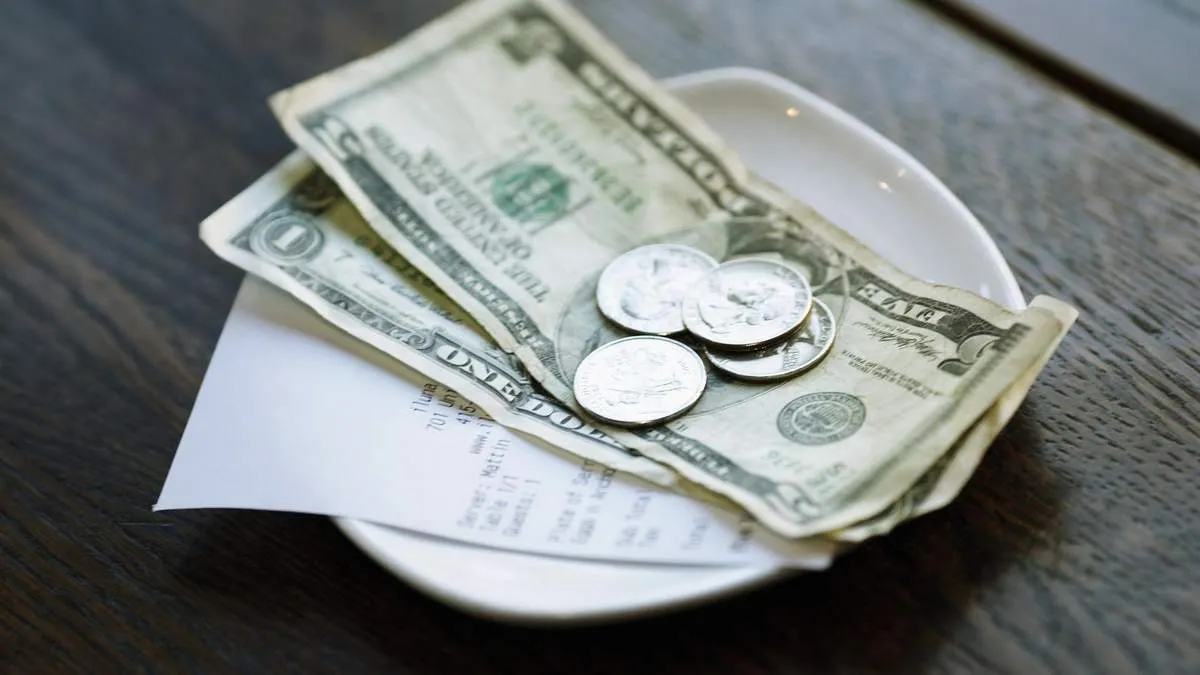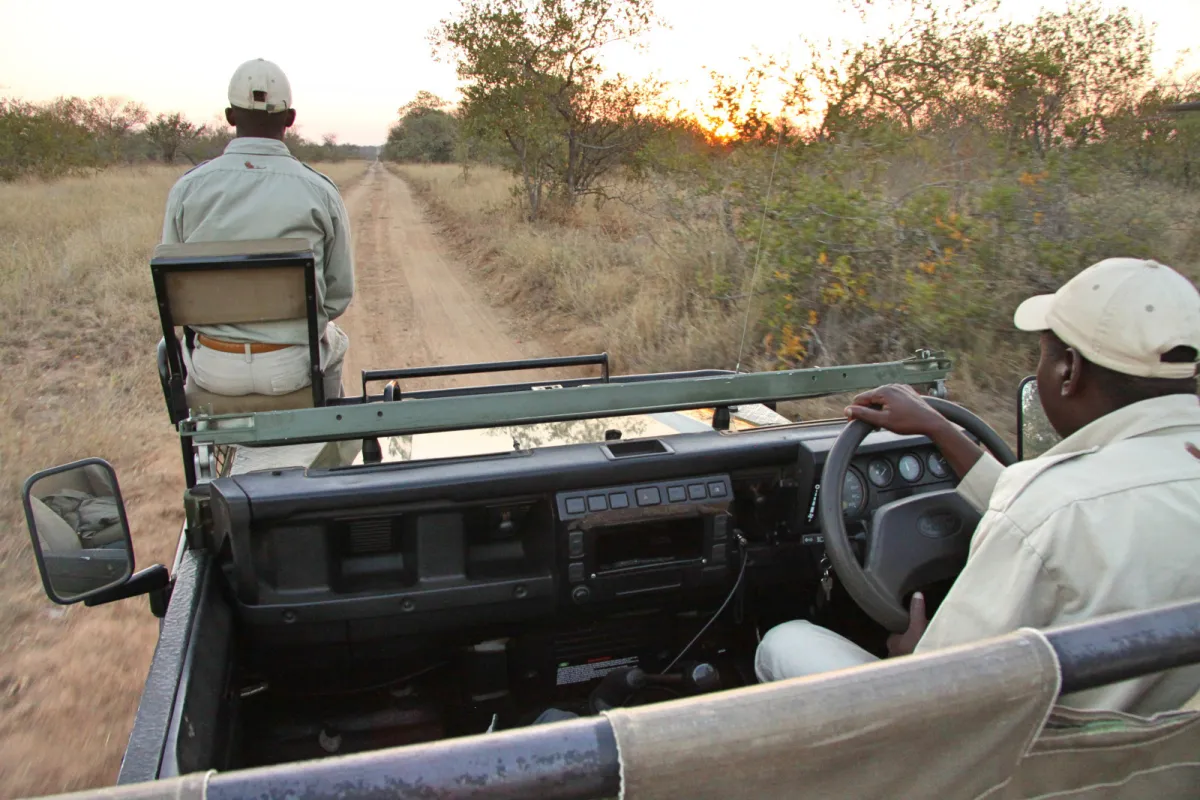To tip or not to tip
"How much should we tip our guide?" is a common question we hear from guests who are about to embark on their first African safari. And the fact that they ask this question already indicates they probably come from a country where tipping is customary, such as the US or UK. In many countries, tipping is not part of the culture and guests may not even think to ask about tipping guidelines. So when in Rome, should you do as the Romans do? Or stick to your own culture and custom?
UPDATED 22 August 2023
Why some people do not tip
It is well known that some countries are not used to tipping workers for good service. Either because a service charge is just automatically added to the bill (something which I must confess I dislike), or because the workers are already paid well, and there should be no need for the customer to pay extra. If the workers are paid a decent wage to do their job, is it not reasonable, one might ask, to expect them to do their job well and deliver excellent service? Why should it cost the customer 15% extra to thank someone for good service, when they're already being paid to do their job well and deliver good service? In some countries, workers take such pride in the fact that their service is always good that offering a tip can even be seen as an insult.
In certain wealthier nations, wages are generally good and even waiters or other service staff can make a decent living without having to rely on tips. Or at least so I am told. There is a certain logic in the argument that a customer paying $60 for an expensive restaurant meal should not be expected to fork out (excuse the pun) another $10 as a tip to the waiter, who is merely doing what they are paid to do by the restaurant. Unfortunately, this argument only holds water in countries where restaurant staff actually earn a decent living wage. That is certainly not the case in most African countries, where waiters earn a very poor minimum wage. In addition, a restaurant owner might incentivise staff wages based on profit generated (upsell the customer to the more expensive wine!) while a potential tip from the patron incentivises good service, not higher sales. As a customer, I would rather incentivise good service.

Service tip
In my opinion, a tip should be voluntary and reflect how happy you were with the service. This is why I hate it when establishments add an automatic service charge of 10% or 15% to the bill. What if the service was poor? Can I ask for the service charge to be removed from my bill? Also, who gets the service charge? Do the waiters or kitchen staff see any of this money, or is it just a convenient way to pad the profits with an extra 15%?
Why it is customary to tip in Africa
I would say when in Africa, do as the Africans do. Service staff in most African nations rely heavily on tips and gratuities to supplement their income. Basic wages are poor, even in countries with strict minimum wage laws like South Africa. The minimum daily wage is not much above $10 per day at the current exchange rate, and there are even some employers who don't employ permanent staff at all, but take on casual workers who work for tips only. Restaurant staff, porters, tourist guides and other service staff are all expected to make some money from tips and are accordingly paid very low wages, in most cases.
This is why it irks these workers so much when tourists from other countries refuse to tip because they are not used to tipping back home. I will refrain from mentioning the nationalities, but ask any waiter or tour guide and they can tell you immediately which nationalities don't tip. So why should you tip, if you are not used to tipping back home? Here are some reasons you may want to consider:
- For a start, you may want to tip simply because you are not at home, you are in Africa. And here it is customary to tip service staff, even for average but acceptable service.
- Because the people serving you, driving you, carrying your bags, taking your orders and showing you their country are paid extremely low wages in local currency and rely heavily on tips to make a decent living.
- Because, most likely, you will find that things are cheaper here than back home. In South Africa, for example, you can easily enjoy a decent three-course restaurant meal for only $25 per person. Adding a $4 or $5 tip to the waiter will not break the bank. Most restaurants do not automatically add a service charge (if they do, there is no need to tip extra in my opinion).
- Because it shows gratitude. By and large, the people who serve us are hardworking, friendly people who will give you excellent service even if you don't tip them at all. They take pride in doing their job well and a tip is a small token of appreciation, recognition of their work. Not tipping may be seen as insulting - essentially you are saying they did not do their job well and the way they served you does not deserve a tip. Be aware of this if you come from a country where tipping is not part of the culture.
How much to tip?
This is one of the most common questions for first-time visitors. And of course, there is no straightforward answer. How much to tip depends on the type of service, how much you paid for it, the number of people in your group and the level of service you received.
- For porters, car guards and other once-off service staff a couple of coins (not more than $1) is customary. Anything over $1 (R20) will be considered generous.
- For waiters at restaurants, a tip of 10% of the bill is customary. A tip of 15% will be considered generous. A tip of 5% will be considered little and would be appropriate if you were not entirely happy with the service. However, it is important to recognise who was at fault, if there was a problem. It's no good punishing the waiter by withholding their tip if the kitchen first undercooked and then overcooked your steak and you had to send it back several times. That's not the waiter's fault.

It's customary to tip housekeeping staff
- For hotel staff such as housekeeping, leaving a tip for the cleaners at the end of your stay is customary. The amount will depend on the length of stay. Consider also that there is probably a whole team of cleaning staff taking turns or shifts, and the person who pockets the tip on Sunday when you check out may not be the same person who cleaned your room the whole week. And sometimes they work in pairs. It might be better to leave a small tip each morning for that day's cleaning staff to collect. $1 or $2 (R20 - R40) would be customary at a hotel, but the amount is up to you. It may also depend on what they do for you. At some self-catering establishments, the cleaning staff may do your dishes for you if requested or may have to clean your entire two-bedroom apartment each day, which may take them most of the morning. In a case like that, a tip of $10 (R200) per day would be more appropriate.
- At safari lodges, there are several people to tip. Porters can be tipped $1 (R20) or so per bag for carrying your bags to your room. Cleaning staff can be tipped the same way as hotel staff, by leaving a tip in your room. Note that you need to make it obvious you are leaving the money as a tip because, in my experience, most cleaners (with a few unfortunate exceptions) will be far too honest to pocket any loose cash they find lying around the room. Maybe leave it on the nightstand with a thank you note. The end of your stay is a good time to tip your guide, tracker and the kitchen staff/ground staff. You can do this by requesting envelopes at reception and marking them "guide", "tracker" and "kitchen/ground staff". All of these people are paid low wages and will appreciate the tip very much. Leave a combined tip for the kitchen staff and ground staff if you were impressed with the food and ground maintenance in general. An amount of about $10 (R180 - R200) per day is reasonable.
- For the tracker and guide, a tip of about $10 (R180 - R200) per day is also reasonable. If you consider that most safari lodges cost well over $300 per night, leaving a $30 tip ($10 each to the guide, tracker and kitchen staff) is about 10%, probably less. At a more expensive lodge, or if the service you received was exceptional, it might be appropriate to leave a bigger tip. Here again, I would like to make the point that the guide and tracker are not always at fault if your safari was disappointing. They are not in control of the weather or the wildlife sightings. If you had poor weather and poor sightings but the guide and tracker were good, don't punish them by tipping poorly.

Safari guides and trackers
- For tour guides in general, the amount per day will depend on the quality of service you received, and the number of people in the group. If you went on a private tour with no other guests, tip more generously. If you were two people out of a group of 10, hopefully the others will tip as well, unless there are a few people from ... (yikes, just stopped myself in time!) A tip of $10 (R180 - R200) per day is fine if others are also contributing. If you were alone and very happy with the service, a tip of $20 will be considered appropriate, and anything more than that will be considered generous. For a longer tour (a week or longer) it is not uncommon to tip your tour guide or driver $100 (R1800 - R2000) or more at the end of the trip. That may seem like a lot but it will still be a comparatively small percentage of what you paid for the tour.
Whatever amount you decide to tip is fine, as long as the tip reflects the quality of service received. The amount is up to you. Don't feel obliged to tip if you genuinely received poor service. Poor service should not be rewarded, in my opinion. Having said that, good service should be rewarded, so please don't withhold your tip just because your culture at home is not in the habit of tipping service staff. Even if you don't agree with it and would rather see all staff receive a decent living wage, the reality in Africa is that many people don't earn a decent living wage, and rely on gratuities from the tourists they serve.
As a closing remark, please note that tipping is not the same as bribing someone. Don't be tempted to "tip" the immigration guy at the border to wave you through, because this may be seen as an attempted bribe. Don't ever "tip" a traffic cop who pulls you over and demands that you pay a spot fine. Ask for a written fine and don't hand cash to any traffic cop on the side of the road - at worst it may get you arrested for attempted bribery, and at best it will just feed the corruption problem (even if it gets you off the hook). Most nations are battling to eradicate corruption, and African countries are no exception. Tipping is ok, bribing is not.
What is your opinion on tipping? Let us know by leaving a comment below.
About the author

Onne Vegter is the managing director of Wild Wings Safaris. He has a deep love for Africa's people, wildlife and natural heritage. Having travelled extensively to Africa's top safari destinations, his writing is based on his personal travel adventures and decades of experience in the safari industry. Follow him on X at @OnneVegter.









